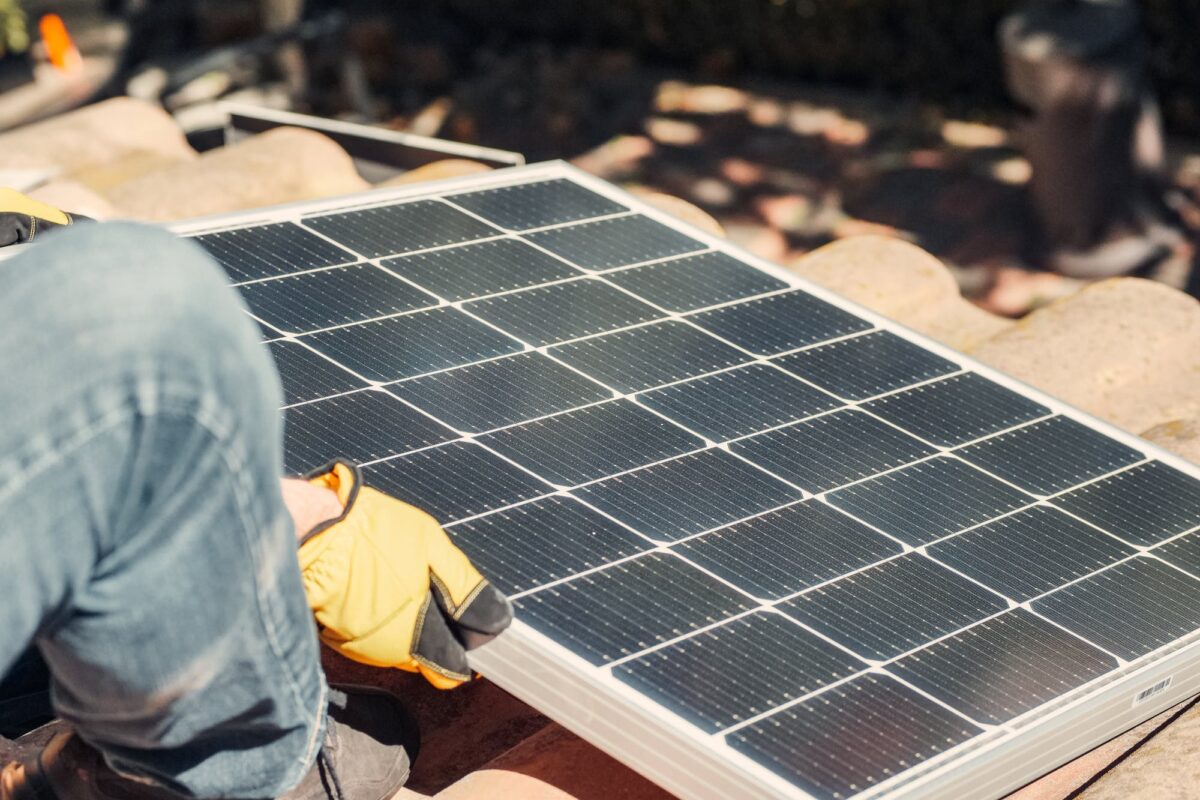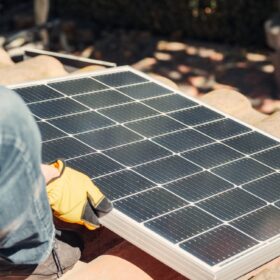SunDensity has secured $2.5 million in early-stage funding for a smart coating technology that it says will increase the per panel power output by 20%. The photonic coating company, which has already signed wholesale distribution agreements with eight glass manufacturers that make pv panels, is aiming to get its new photonic smart coating to market during the second half of next year.
“We are already beginning to field test it,” Nish Sonwalkar, SunDensity’s founder said. SunDensity’s photonic smart coating (PSC) converts blue light that can’t be absorbed by solar panels into red light that can be readily converted into electricity. “It decreases costs because it helps panels generate 20% more power and increases the lifespan of the pv panels, thereby reducing the life cycle cost of solar energy,” Sonwalkar said.
SunDensity’s PSC technology is a glass coating solution that can be applied on new or existing panels. Initially, the focus will be on the utility-scale new panel market.
“It’s paper thin… If you stick it on existing panels, you can extend the life of panels,” he said, estimating that it can take the average life of a panel from 25 years to 30 years. Silicon panels currently represent about 90% of the solar panel market, but SunDensity’s coating can work for call types of solar cell technologies.
Glass panel manufacturers can apply the solar coating with the same magnetron sputtering tools that are already in use in the architectural glass industry. “They can put an anti-reflective coating on one side and our coating on the other,” Sonwalkar explained.
On arrival SunDensity’s PSC technology will be the first commercialized photonic down conversion coating solution, Sonwalkar said. Earlier attempts at developing photonic coatings for pv panels didn’t make it out of the lab because they were too expensive to commercialize; they used expensive rare-earth materials and raised environmental concerns. “Ours uses materials that are non-toxic,” he explained, adding that SunDensity’s technology also relies on Earth abundant materials.
SunDensity also expects its technology to appeal to companies make infra-red surveillance cameras and architectural window glass. “The photonic smart coatings can increase the quantum efficiency of the infrared sensors and image sensors for surveillance cameras,” Sonwalkar said. “[PSC can] also shape the thermal response of the architectural glasses, reducing heating and ventilation loads for tall buildings with glass covers,” he added.
Temple Fennell, co-founder and managing director of Clean Energy Ventures, the climate-tech innovations venture capital firm that led SunDensity’s initial financing said that his firm is “proud to invest in promising early-stage startups, such as SunDensity, that can be major enablers of the energy transition and have the potential to prevent more than 2.5 gigatons of greenhouse gas emissions between now and 2050.”
Luminate, the Rochester Angel Network, LaunchNY also participated in SunDensity’s first funding round.
This content is protected by copyright and may not be reused. If you want to cooperate with us and would like to reuse some of our content, please contact: editors@pv-magazine.com.








Wow! This could be a huge leap in panel wattage. Going from a 330W panel to a 396W panel just by coating the glass is great. Or with utility scale panels going from the new 500W to 600W and being able to use 80% of panels/racking/tracking/labor/land. This can drive down solar costs quicker than anything in recent memory.
This was tried back in the 1980s and it failed. Getting a shorter wave length out of a longer wave length or vice versa required a prisim glass coating that focussed the desired wave length towards the cells while deflecting the unwanted ones away. This gave in to losses from additional heating and shorter life expecanacy of the panels. Coating failures occured sooner than the panel life expectancy. keeping the glass coating clean and not attrcting dust due to static build up was another problem with early attempts. lets see if this one realy works. RED SHIFT !